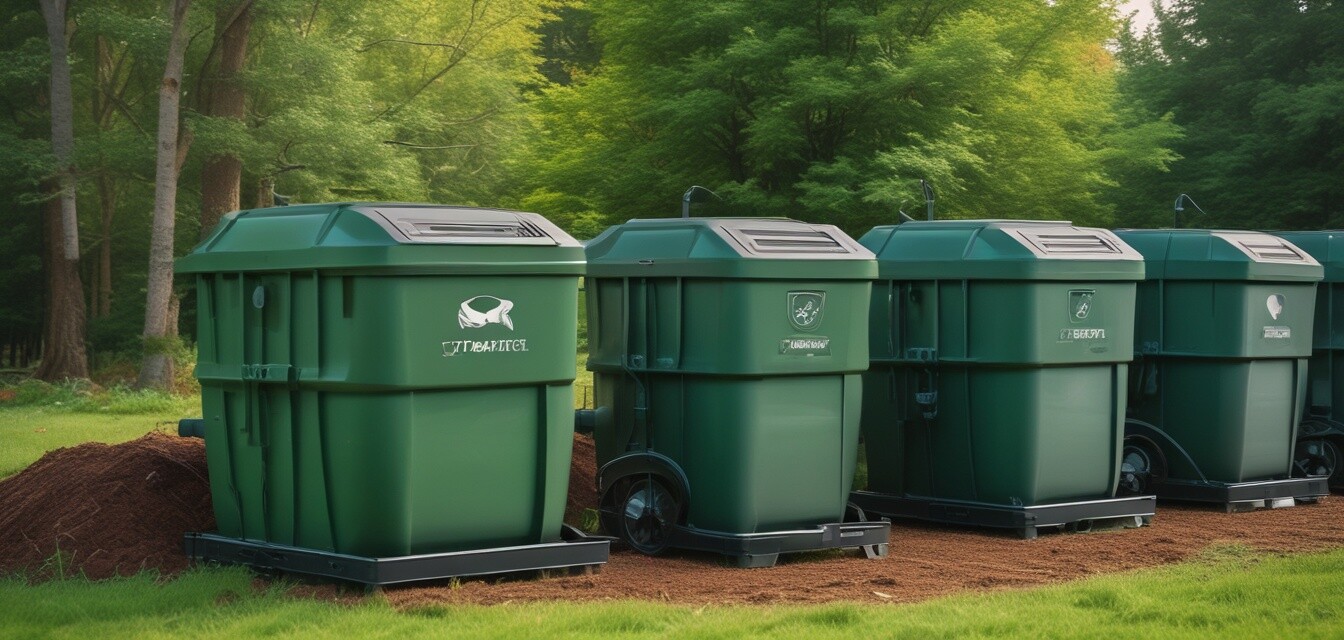
Top Innovations in Composting Technology for 2024
- 2024 will see advancements in smart composting systems.
- Emphasis on environmentally friendly materials and construction.
- Community-based composting programs continue to emerge.
- New educational tools for effective composting practices.
- Enhanced efficiency in traditional composting methods.
As we move into 2024, the focus on sustainable living and waste management is stronger than ever. Composting technology is evolving to meet the demands of eco-conscious consumers and municipalities. From smart composters that optimize the decomposing process to innovative community initiatives, there are numerous advancements worth noting. Let's explore the top innovations poised to transform composting in the upcoming year.
1. Smart composters: Redefining waste management
Smart composters are at the forefront of composting technology. These devices utilize sensors and advanced algorithms to create optimal conditions for composting. Here are some key features:
| Feature | Description | Benefit |
|---|---|---|
| Real-time monitoring | Tracks temperature, moisture, and oxygen levels. | Ensures efficient decomposition. |
| Mobile app integration | Users can monitor progress remotely. | Enhanced convenience and user engagement. |
| Automated mixing | Regularly aerates the compost. | Accelerates composting time. |
2. Eco-friendly construction materials
Many new composters are being designed with sustainable materials that reduce environmental impact. Here's what to look for:
- Recycled plastics: Durable and resistant to weather conditions.
- Bamboo: A fast-growing renewable resource used for structure.
- Biodegradable composites: Designed to break down naturally after their lifespan.
Benefits of eco-friendly materials
Using such materials not only supports sustainability but also encourages a circular economy. Products like these align well with environmental goals.
3. Community composting initiatives
The trend towards community composting is rising, with neighborhoods banding together to create shared composting facilities. Some benefits include:
- Reducing overall waste per household.
- Encouraging local farming and gardening.
- Building community relationships and encouraging collaborative efforts.
For more on community efforts, check out our Composting Trends section.
4. Education and training tools
Affording individuals the knowledge to compost effectively is crucial. Innovations here may include:
- Interactive mobile apps that guide composting best practices.
- Online courses focusing on composting techniques.
- Workshops organized by local governments or NGOs.
5. Upgraded traditional methods
Even traditional composting methods are seeing enhancements. Innovations in aeration techniques and materials now allow for faster breakdown of organic waste.
| Method | Old Technique | New Technique |
|---|---|---|
| Aeration | Manual turning with pitchfork. | Utilizing aeration tubes for consistent airflow. |
| Materials Used | Mix of kitchen scraps and yard waste. | Incorporating biochar for improved carbon retention. |
Conclusion: The future of composting technology
With the pace of innovation in composting technology, 2024 is set to be a pivotal year for waste management solutions. By embracing smart systems, environmentally friendly materials, community initiatives, effective educational tools, and upgrading traditional methods, we can foster a more sustainable future. Composting not only benefits individuals but also contributes to a healthier planet.
Pros
- Enhanced efficiency in waste management.
- Greater accessibility to composting solutions.
- Reduced environmental impact thanks to sustainable materials.
- Community engagement fosters a culture of sustainability.
Cons
- Initial investments can be high for smart composters.
- Community initiatives require coordination and maintenance.
- Reliance on technology may deter traditional composters.
Tips for beginners
- Start small with a basic composter.
- Learn the ratios of browns to greens in composting.
- Experiment with different composting methods to find what works best for you.
- Attend local workshops to gain knowledge and connect with other composters.
To learn more about different composting options, visit our Bokashi Composting and Open Air Composters pages.